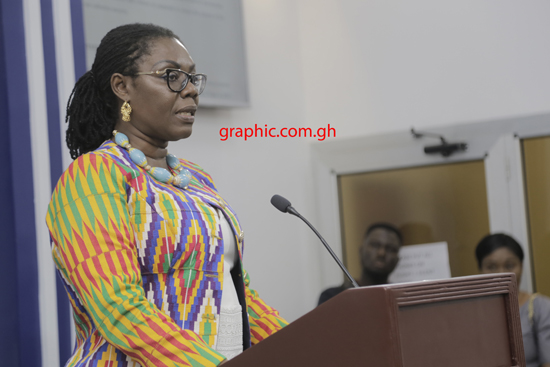
Ghana ranked Africa's third in cybersecurity
The International Telecommunications Union (ITU) has rated Ghana number three in Africa on its Global Cybersecurity Index (GCI).
Ghana's new ranking in Africa is a major leap from the 11th position attained in the previous rating of 32.6 per cent in 2017 and 43.7 per cent in 2018, projecting the country among the best in the region and globally.
The current assessment covers the 2019-2020 period and reflects data collected during the COVID-19 pandemic.
The GCI has, since its launch in 2015, become a trusted reference, measuring countries' commitment to cybersecurity and raising awareness of its importance.
The level of each country's development or engagement is assessed along the five strategic pillars of the ITU's Global Cybersecurity Agenda (GCA) - legal measures, technical measures, organisational measures, capacity building and international cooperation - which are aggregated into an overall score.
Achievement
Commenting on the rankings released last Tuesday by the world telecommunications governing body, the National Cybersecurity Advisor, Dr Albert Antwi-Boasiako, said the achievement was proof of the government's commitment to develop the country's cyberspace for a sustained digital transformation in a secure and resilient manner.
“This commitment is evidenced by the efforts of the government in the implementation of critical interventions in the country's cybersecurity ecosystem,” he said.
Key among the interventions meriting the rating included the revision of the National Cybersecurity Policy and Strategy to provide a national direction and implementation plan for Ghana's cybersecurity development, the passage of the Cybersecurity Act, 2020 (Act 1038) to provide a legal basis for its cybersecurity development and the institutionalisation of cybersecurity to foster domestic cooperation and collaboration, Dr Antwi-Boasiako said.
Factors
Other factors included the ratification of relevant cybercrime and cybersecurity international conventions and treaties, such as the Convention on Cybercrime, and the development of Ghana's Computer Emergency Response Team (CERT) ecosystem.
“The government, through the Ministry of Communications and Digitalisation, working closely with other relevant ministries, agencies, international partners and private sector stakeholders, remains committed in its efforts to ensure that the various digitalisation interventions rolled out are secure,” the National Cybersecurity Advisor said.
Dr Antwi-Boasiako said the National Cyber Security Centre (NCSC) was expected to transition into the Cyber Security Authority (CSA) in the coming weeks, per Section 2 of the Cybersecurity Act, 2020 (Act 1038), to regulate cybersecurity activities in the country and further lead Ghana's cybersecurity development.
Report
The GCI was introduced to measure the commitment of 193 ITU member states, as well as the State of Palestine, to cybersecurity to help them identify areas of improvement and encourage countries to take action through raising awareness of the state of cybersecurity worldwide.
The report aims at understanding countries' commitment to cybersecurity, identify gaps, encourage the incorporation of good practices and provide useful insights for countries to improve their cybersecurity postures.
The report was based on findings on the overall improvement and strengthening of all five pillars.
The latest work recommended the importance of governments taking stock of the policies and practices in place regarding cybersecurity as the world continued to evolve.
According to the report, about one billion people worldwide became Internet users for the first time between 2015 and 2019.
It indicated that citizens counted on governments to enhance cybersecurity norms and protect increasingly exposed personal and financial data owing to global losses due to cybercrime, which was expected to reach $6 trillion this year.
It said the methodology had been adapted to shed more light on countries' cybersecurity commitments.